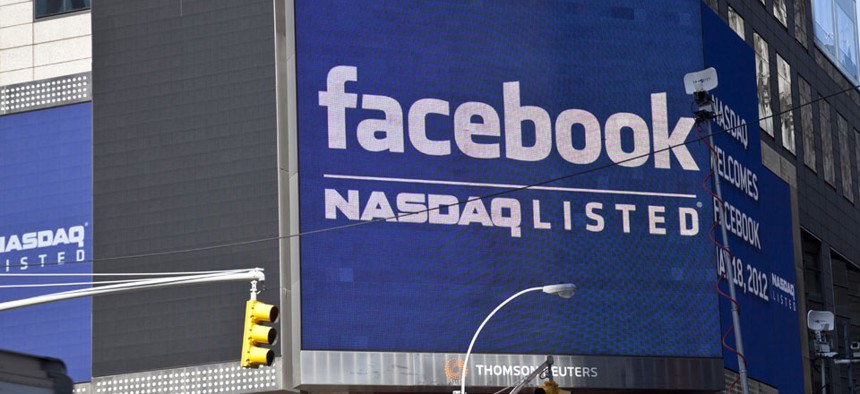Veterans Outreach Project to Spend $1 Million on Facebook Ads this Year

lev radin/Shutterstock.com
The Make the Connection campaign spent $2 million to lure Facebook followers last year.
A Veterans Affairs Department outreach campaign that spent $2 million on Facebook advertising last year plans to spend an additional $1 million this year, VA officials said on Thursday.
Make the Connection launched in 2011 and was tasked with forging stronger connections between returning veterans suffering from post-traumatic stress disorder and VA services. Program officials believe Facebook ads helped them connect significantly more veterans with services than they otherwise would have, the campaign’s project manager Koby South said.
VA has been overwhelmed at times by the crush of new veterans from Iraq and Afghanistan and has struggled to maintain services. The department has a backlog of about 800,000 un-processed disability claims, including claims for mental health services.
Make the Connection’s first $2 million Facebook ad buy came out of a total outreach budget of $7.5 million for the campaign and was largely focused on building the campaign’s number of Facebook followers, South said.
The campaign’s $1 million Facebook ad buy planned for this year will focus on better engaging with that community of followers, he said.
Make the Connection’s Facebook page now has about 1.65 million “likes” compared with about 300,000 likes for VA’s main Facebook page and 78,000 likes for its main health administration Facebook page. The White House Facebook page, likely the most popular in government, has about 1.8 million likes.
Make the Connection's website and Facebook page feature videos of veterans describing their struggles with mental health problems, addiction and the return to civilian life. It also features a locator tool that shows veterans the nearest place to seek treatment and support services.
Nextgov first reported VA’s $2 million Facebook ad buy on July 12. While Make the Connection was responsible for the vast majority of VA’s Facebook ad spending, other divisions made ad buys too, usually just a few thousand dollars to test the waters, said Brandon Friedman, who was VA’s online communications director until August 2012.
Friedman canceled Facebook ad buys for the main VA page after learning of an algorithm change that resulted in posts from organizations that didn’t buy ads appearing in fewer of their followers’ newsfeeds, he said.
A study reported by the magazine Ad Age in November 2012 found a nearly 40 percent drop in the number of “organic” posts -- meaning posts that weren’t backed by advertising money -- that Facebook users were seeing from organizations they “liked.”
After the algorithm change, Friedman felt VA was being “taken advantage of” by Facebook and decided he’d prefer to spend money elsewhere, he told Nextgov.
A State Department inspector general report in May found employees in State’s Bureau of International Programs were deeply skeptical of that office's decision to spend $630,000 on Facebook advertising aimed at reaching out to foreigners. Many officials thought the money was wasted, the report found.
Facebook treats the pages of companies, federal agencies and other organizations differently from personal pages.
Make the Connection officials said they had no regrets about buying Facebook ads and that they believe the hike in their follower count translated into more veterans receiving VA mental health services.
Roughly 600,000 people who visited the Make the Connection website during the campaign’s first year were referred through Facebook, South said. The campaign estimates about 9,000 people have used the page’s resource locator tool after Facebook referrals out of about 79,000 total uses of the locator tool so far.
“The reason we chose Facebook as a platform is we know that’s where veterans are getting information,” said Wendy Tenhula, national mental health director for the Veterans Affairs and Defense departments’ integrated mental health program. “Our goal is to get information to veterans related to mental health and to help them to seek care if they need it. So we have to meet veterans where they are.”
Facebook is the most popular social media site among veterans, Friedman said, far outpacing Twitter, YouTube and other sites. As a result, VA and private veterans organizations have tended to focus more of their outreach efforts on the site. VA has also spent several million dollars on television ads to educate veterans of the wars in Iraq and Afghanistan about benefits they’re eligible for.
Correction: A previous version of this story misstated the number of people who have used Make the Connection's resource locator tool. The campaign estimates about 9,000 people have used it.
(Image via lev radin / Shutterstock.com))
NEXT STORY: NASA Kepler repair begins






